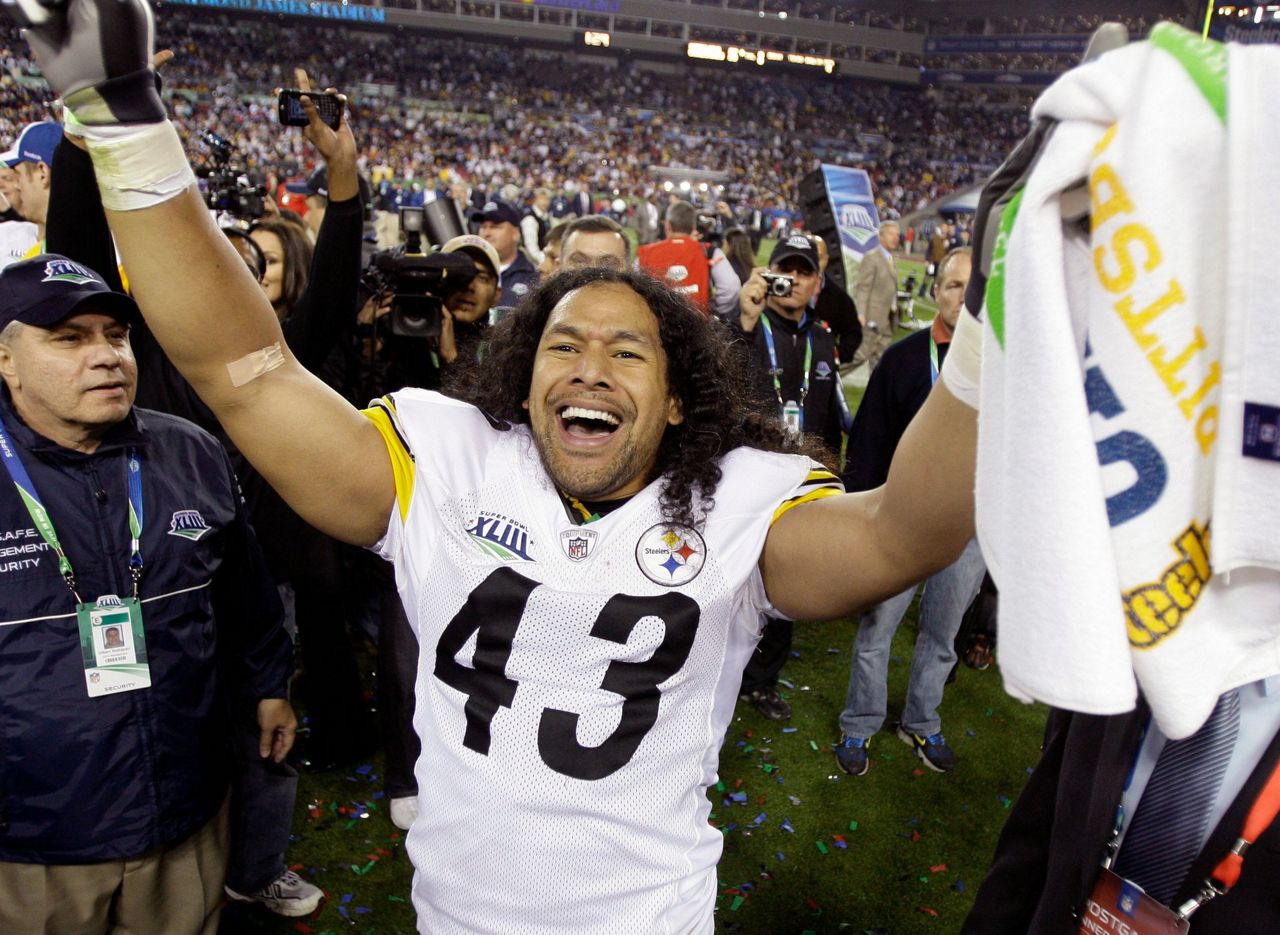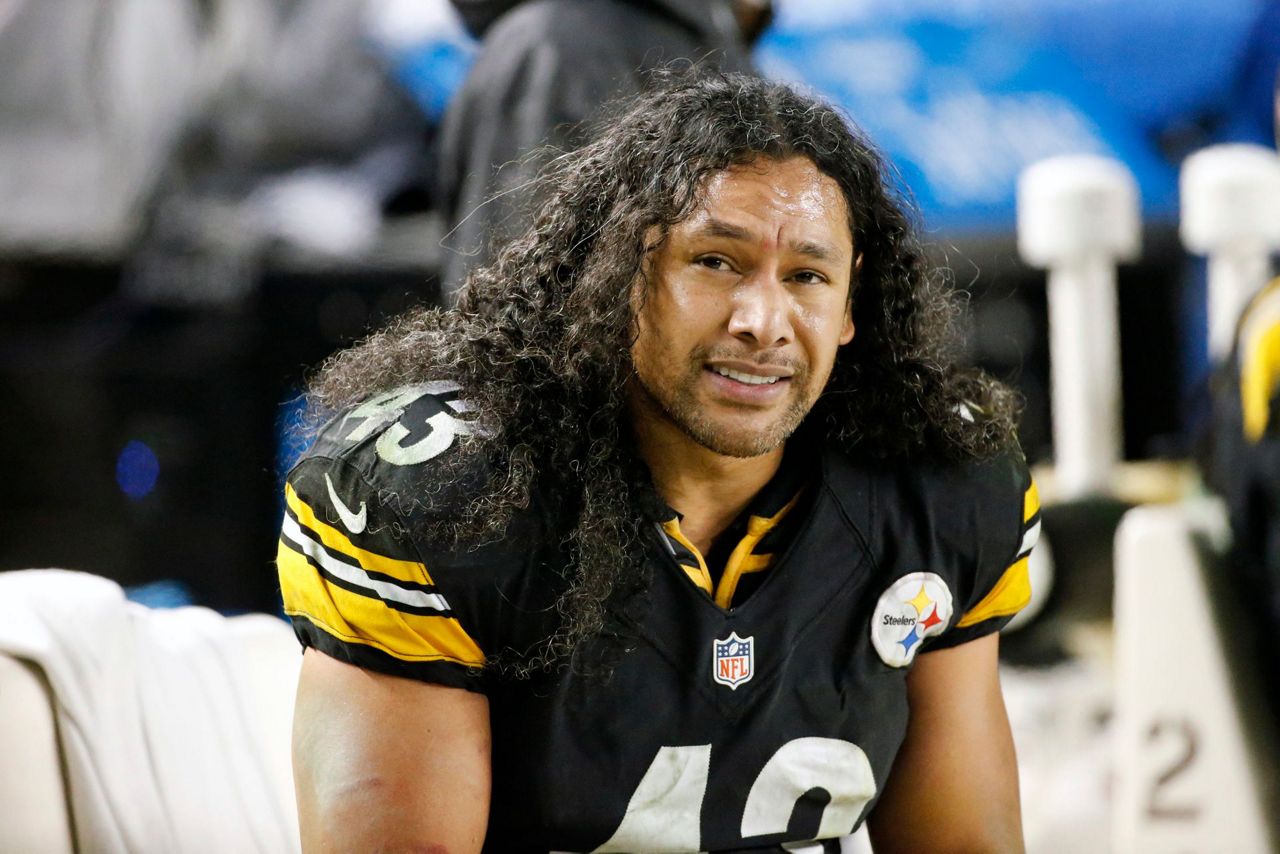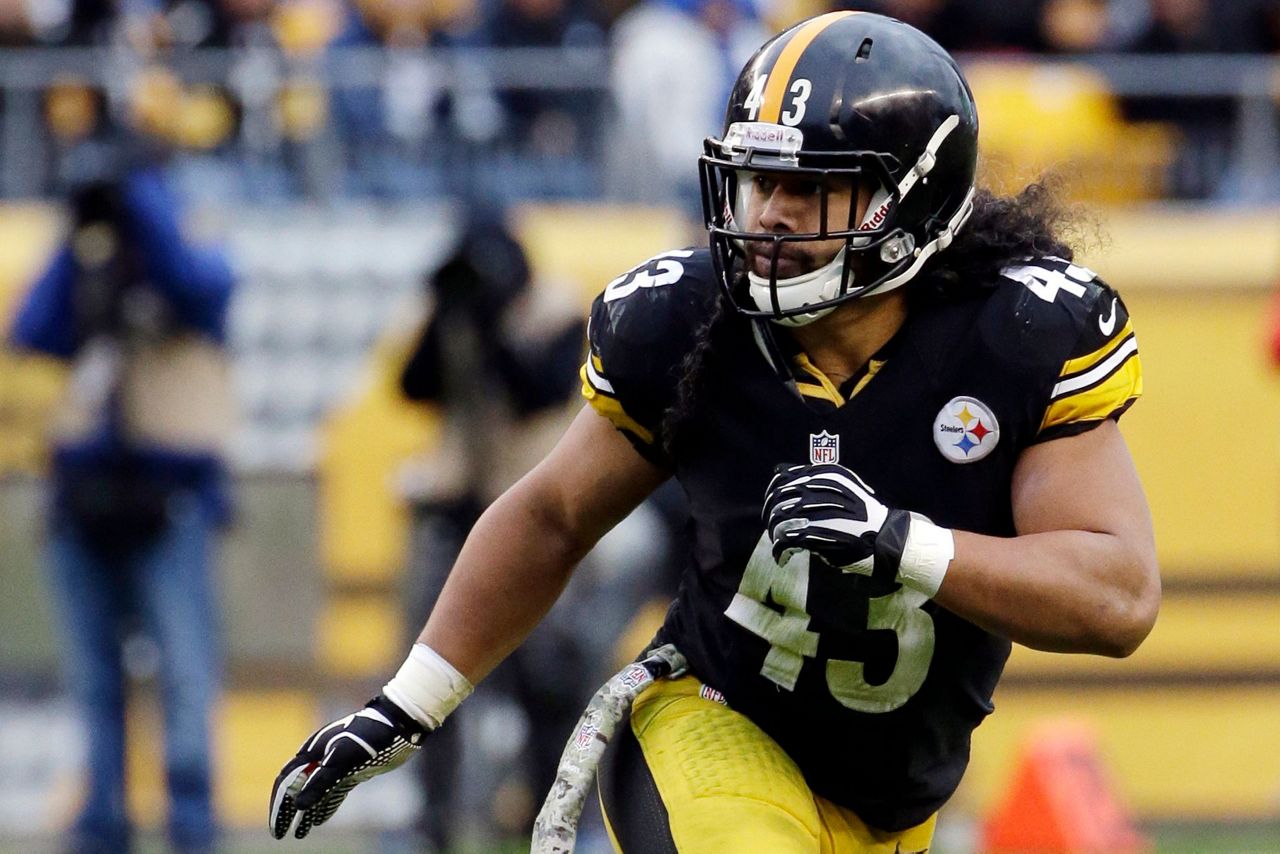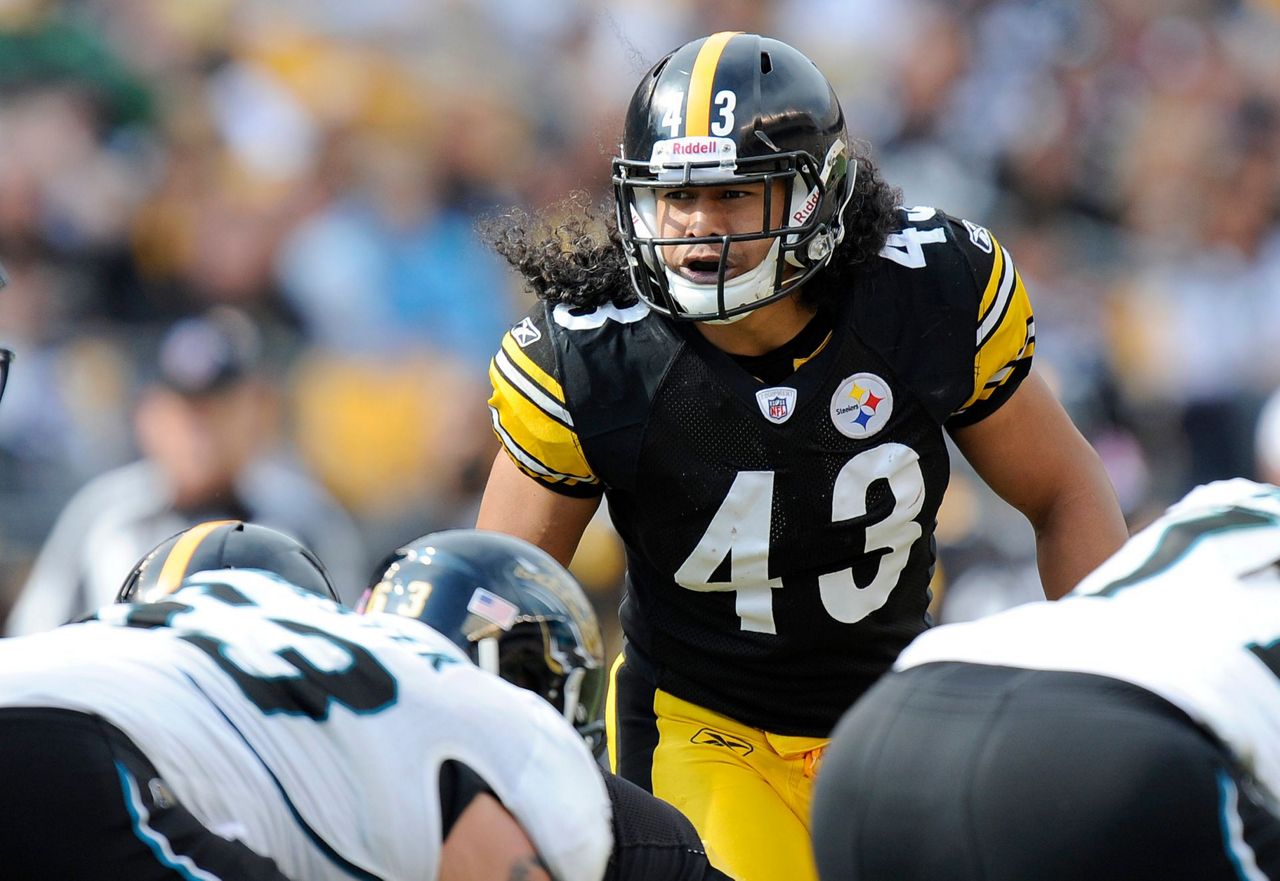PITTSBURGH (AP) — The Pittsburgh Steelers, like most NFL teams, enter the draft with a group of players they'd like to find a way to land with their first pick.
Not in 2003. There was only one name on then-director of football operation Kevin Colbert's list: Troy Polamalu.
One problem: Pittsburgh had the 27th overall selection, considered far too late to have any shot at the freewheeling safety out of USC. So Colbert approached his bosses with a very un-Steelerlike idea, suggesting the team trade up in an effort to bring Polamalu into the fold.
So what if the team had never climbed the board in the first round before? Colbert was insistent.
“Kevin just felt like he was going to be a really special player,” said Art Rooney II, Pittsburgh's vice-president at the time. "He knew Troy had great physical ability but probably more importantly I think Kevin just felt really strong about his character, his football character. And just be the kind of guy that was going to be able to come in and make a difference.”
Or more specifically, a player who could make all the difference.
Pittsburgh eventually put together a package Kansas City found enticing enough to accept, a deal that allowed the Steelers to move up to No. 16. The Steelers practically sprinted to the podium, making a pick that would help the franchise to a pair of Super Bowl titles and put Polamalu on track to the Pro Football Hall of Fame.
Polamalu’s participation in his enshrinement next weekend was cast into doubt Friday when he posted on social media that he had recently tested positive for COVID-19. He said he was working with the Hall of Fame and health officials to determine whether he could be cleared to travel.
Polamalu — who is to be inducted in a class that includes former Pittsburgh head coach Bill Cowher and longtime Steelers defensive back Donnie Shell — didn't necessarily think he would ever be heading to Canton following a rocky first season he called both humbling and humiliating.
Polamalu didn't start. He didn't do much of anything really, leading to a difficult but necessary conversation with himself about what he wanted out of his life, and what he wanted out of his football.
“(It was like) 'Listen, man, either you’re going to go all-in on this or all-out because if you’re not all-in on this, then there may not be a career,'" Polamalu said.
So he bought in, making the dietary choices necessary to get in shape while becoming more comfortable with defensive coordinator Dick LeBeau's system. LeBeau and Cowher quickly realized they had to walk a fine line with Polamalu. Yes, he needed to be disciplined. Just not at the expense of the innate football IQ that made him nearly impossible for opponents to gameplan against.
“Troy, when he was on the field, you did not want to harness him. you let him play," Cowher said. “If he got uncomfortable, that made me uncomfortable. We gave him a lot of leeway.”
The kind of leeway that often ended with Polamalu doing something spectacular. His long hair — a tribute to his Samoan roots — spilling out from under his helmet onto the top of his No. 43 jersey, Polamalu careened from one side of the field to the next for 12 seasons in Pittsburgh.
Eight Pro Bowls. Four All-Pro selections. An NFL Defensive Player of the Year Award in 2010 and a pair of Super Bowl wins to go along with 32 interceptions, 12 sacks and five return touchdowns.
Yet defining Polamalu by the numbers seems like a disservice. It wasn't just what he did. It's the way he did it.
The weaving pick-6 against Baltimore in the 2008 AFC title game. The leapfrog over the line to stuff Tennessee's Kerry Collins a yard from the end zone. The impossible diving one-handed interception against the Chargers. The strip-sack of Ravens quarterback Joe Flacco late in the fourth quarter to pull off a stunner on the road.
That's just Troy being Troy. Polamalu played with a ferocity that belied his quiet nature off the field.
“He was obviously one of those kind of guys, that once he crossed the white line, he flipped the switch and boy when that switch got flipped on, he was on and he just was an unbelievable player,” Rooney said. “And once we stepped off the field, he was as gentle and humble a person as you'll find.”
During the end of a mundane minicamp in the spring of 2012, Polamalu found himself walking off the field with defensive back Myron Rolle. A Rhodes Scholar, Rolle was attempting to keep his career alive at the time. The two engaged in an animated discussion. Their chat, however, didn't focus on Pittsburgh's defense. Far from it.
"We were talking about the expansion of the middle class and how resources are running out,” Rolle said at the time. “How everyone wants to have two cars and three TVs in their house. But how are we going to sustain that with 6.4 billion people on the earth and growing?”
It's why as much as Polamalu loved football, he refuses to be defined by it. He retired in 2015 after it became apparent the Steelers were not going to bring him back. Whatever hard feelings he harbored, however, have vanished over the last six years. Looking back, he views his quiet exit as a blessing.
"I’m so grateful that I’m here today with the faculties I have, with the health that I have, with my family and being able to experience the memories that I have,” Polamalu said.
One more perfectly timed play for a singular talent who built a Hall of Fame career out of them.
___
More AP NFL coverage: https://apnews.com/hub/NFL and https://twitter.com/AP_NFL
Copyright 2021 The Associated Press. All rights reserved. This material may not be published, broadcast, rewritten or redistributed without permission.






